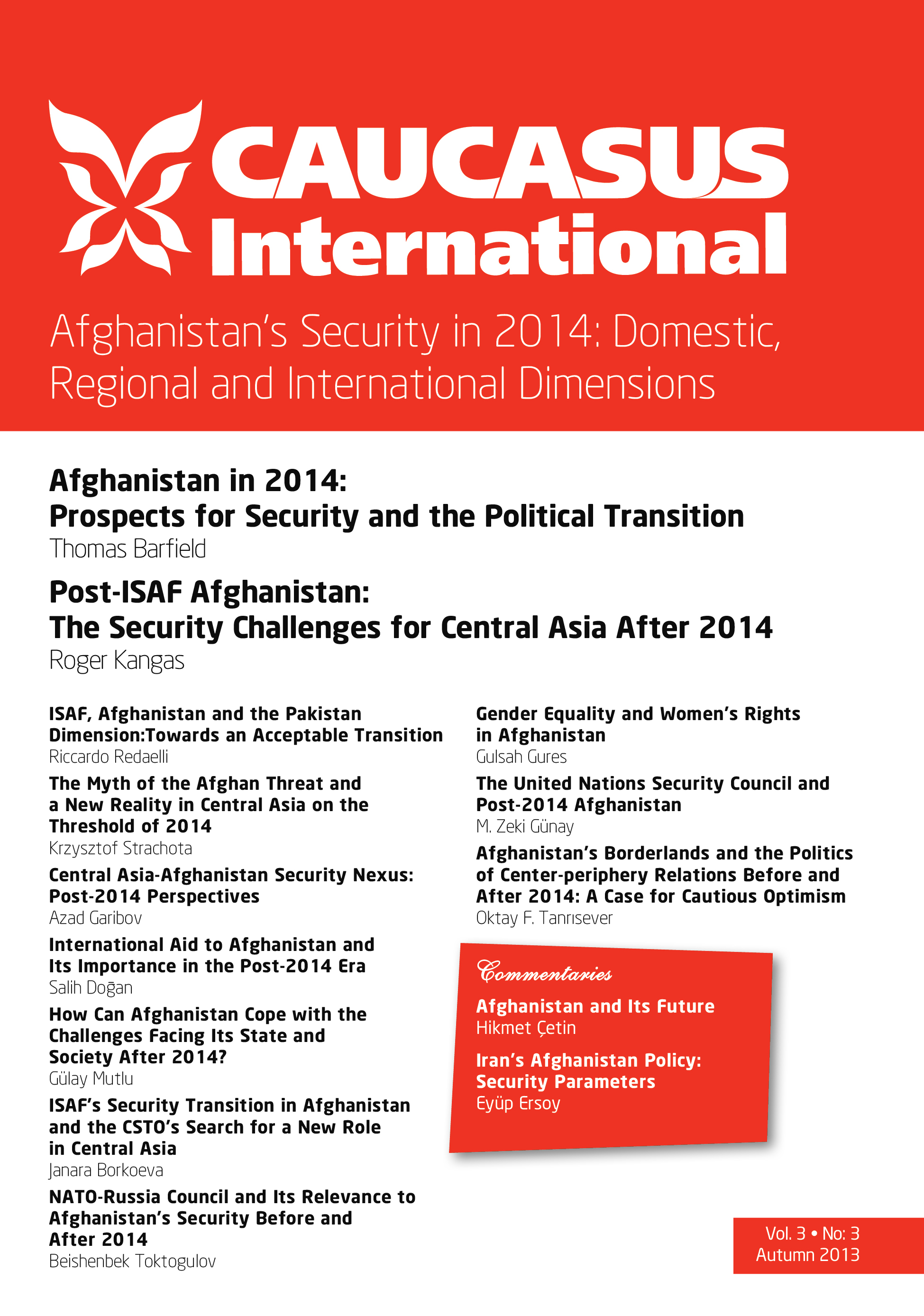The United Nations Security Council and Post-2014 Afghanistan
This paper examines the ways in which the issue of Afghanistan has been discussed by the permanent members at the United Nations Security Council (UNSC), based on an analysis of statements and speeches by each permanent member’s representative during Security Council meetings between 2011 and 2013. The future of Afghanistan is highly dependent on the strategic and economic interests of the permanent members of UNSC. This paper will discuss and compare the views of each permanent member, specifically in relation to: the progress on, and prospects for, peace and reconciliation in Afghanistan; the handover of security responsibility to the ANSF; the current security situation in the country; future engagement of the UN and international cooperation in Afghanistan. The author concludes that the divergence of priorities and concerns, especially between Russia, and to a lesser degree China, and the other permanent members of the UNSC on vital issues in Afghanistan stands as one of the main challenges to an effective and unified UN policy towards Afghanistan in the post-2014 period.
Latest news
- 03/17/2020 Call for Submission: “Non-Alignment Movement and Its Perspective in International Affairs”. Deadline: 1 July 2020 2624 views
Popular articles
- 02/24/2020 The Role of Irredentism in Russia’s Foreign Policy 2535 views
- 02/24/2020 Construction of sub-national identity vis-à-vis parent state: Gagauz case in Moldova 2218 views
- 02/24/2020 The Conflict in Ukraine - The Geopolitics of Separatism and Divergent Identities (Commentary) 2072 views
- 02/24/2020 The Role of the Soviet Past in Contemporary Georgia 2044 views





